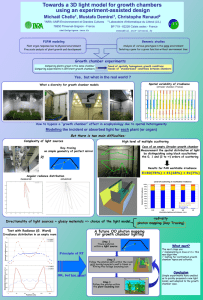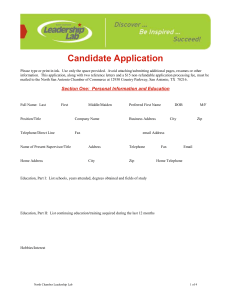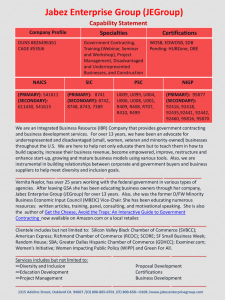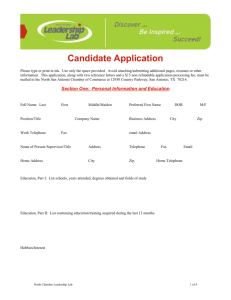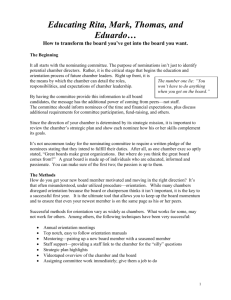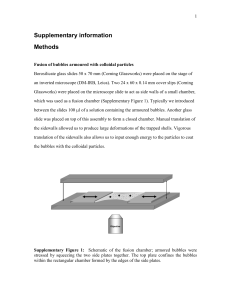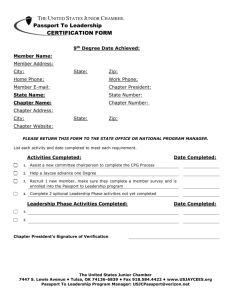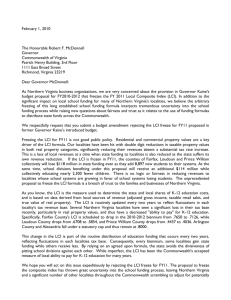2015 State Agenda - Martinsville Henry County Chamber Of
advertisement
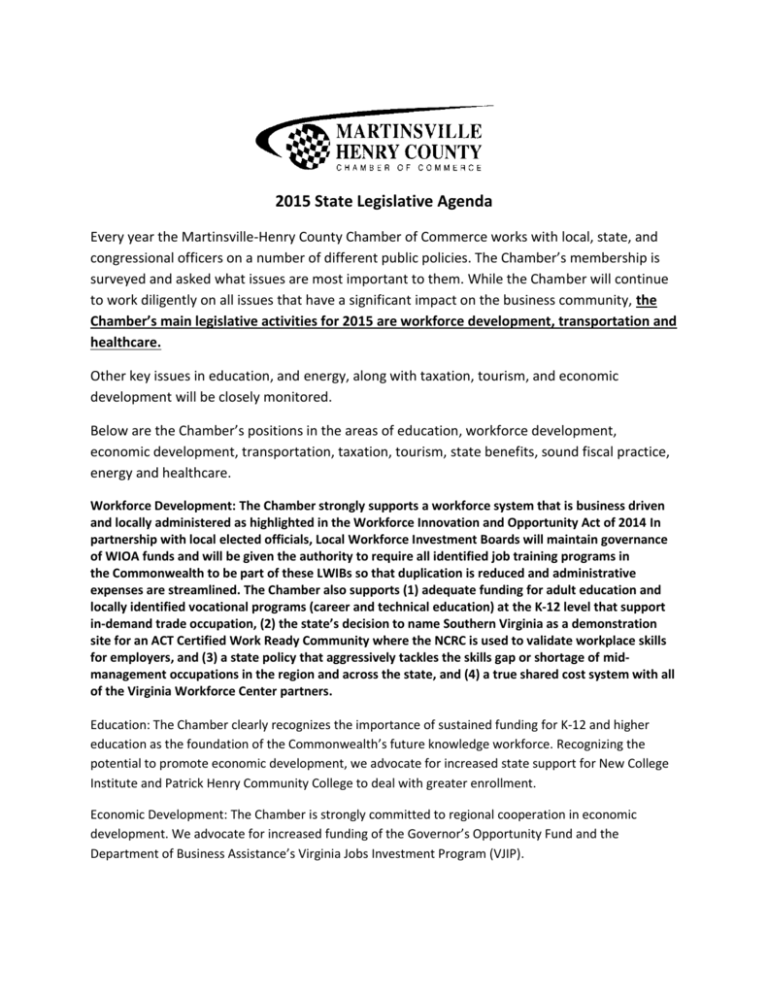
2015 State Legislative Agenda Every year the Martinsville-Henry County Chamber of Commerce works with local, state, and congressional officers on a number of different public policies. The Chamber’s membership is surveyed and asked what issues are most important to them. While the Chamber will continue to work diligently on all issues that have a significant impact on the business community, the Chamber’s main legislative activities for 2015 are workforce development, transportation and healthcare. Other key issues in education, and energy, along with taxation, tourism, and economic development will be closely monitored. Below are the Chamber’s positions in the areas of education, workforce development, economic development, transportation, taxation, tourism, state benefits, sound fiscal practice, energy and healthcare. Workforce Development: The Chamber strongly supports a workforce system that is business driven and locally administered as highlighted in the Workforce Innovation and Opportunity Act of 2014 In partnership with local elected officials, Local Workforce Investment Boards will maintain governance of WIOA funds and will be given the authority to require all identified job training programs in the Commonwealth to be part of these LWIBs so that duplication is reduced and administrative expenses are streamlined. The Chamber also supports (1) adequate funding for adult education and locally identified vocational programs (career and technical education) at the K-12 level that support in-demand trade occupation, (2) the state’s decision to name Southern Virginia as a demonstration site for an ACT Certified Work Ready Community where the NCRC is used to validate workplace skills for employers, and (3) a state policy that aggressively tackles the skills gap or shortage of midmanagement occupations in the region and across the state, and (4) a true shared cost system with all of the Virginia Workforce Center partners. Education: The Chamber clearly recognizes the importance of sustained funding for K-12 and higher education as the foundation of the Commonwealth’s future knowledge workforce. Recognizing the potential to promote economic development, we advocate for increased state support for New College Institute and Patrick Henry Community College to deal with greater enrollment. Economic Development: The Chamber is strongly committed to regional cooperation in economic development. We advocate for increased funding of the Governor’s Opportunity Fund and the Department of Business Assistance’s Virginia Jobs Investment Program (VJIP). Tourism: The Chamber recognizes that tourism initiatives, including the sustained funding of the arts, museums, and attractions, are essential to economic growth to a region. We advocate strongly for continued, sustainable funding to the Virginia Museum of Natural History and Piedmont Arts Association. Transportation: The Chamber supports long term solutions in order to overcome the transportation challenges that Virginia continues to face. The Chamber supports a dedicated, statewide revenue stream to meet critical transportation needs and is not opposed to a user fee dedicated to new transportation projects as long as the incremental revenues are distributed in an equitable manner to all Virginia localities to address state wide transportation needs. We advocate strongly for the completion of US 58 and the construction of I-73, starting at the North Carolina line through Henry County. Taxation: We are concerned about reductions to local taxes by the state government. These issues are best decided by local leaders and local communities who, through the electoral process, determine the appropriate level of taxation to pay for community services. We ask that no measures be enacted that further reduce current funding for localities or shift more funding requirements upon localities. Healthcare: The Chamber remains concerned about the uncertainty surrounding the implementation of the PPACA and its impact on Virginia’s business community. We support efforts to reform Virginia’s Medicaid program to limit the shifting of uncompensated care onto the business community and other unsubsidized users of Virginia’s hospitals and healthcare providers. State Benefits: The Chamber advocates for an accountability program where persons who receive benefits from state entitlement programs are either drug free or in a program to become drug free. This program should adopt a graduated reduction of benefits approach for those who do not meet this standard. Sound Fiscal Practice: The Chamber supports comprehensive tax reform that is equitable, fosters a favorable business climate and encourages economic development but does not take away from funds that provide critical services to our business community nor shifts those funding responsibilities from the state to the localities. Energy: The Chamber supports the development of cost-effective, alternative, and renewable energy sources while keeping Virginia competitive in the energy market. The Chamber further supports the continued development of clean coal technology, exploration for oil and natural gas off of Virginia’s coast, and incentives for implementation of sustainable business practices.

